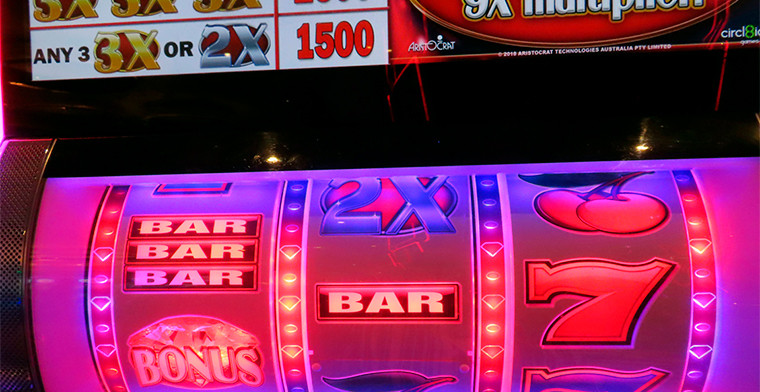New penalties weighed for underage gambling in casinos in New Jersey
Friday 26 de May 2023 / 12:00
2 minutos de lectura
(New Jersey).- People under 21 could now be required to participate in a compulsive gambling treatment program if they are found betting in New Jersey casinos under a bill legislators backed last week.

Under current state law, a person under 21 years old who enters or gambles at a casino can be fined between $500 and $1,000 and is guilty of a disorderly persons offense. Now, new legislation would give courts the discretion to fine violators, require them to go to treatment or both.
The effort by lawmakers to address underage gambling comes as approximately 60% of high school-aged adolescents report having gambled for money during the past year. And 4% to 6% of adolescents have a serious problem with gambling, according to the National Council on Problem Gambling.
New Jersey’s total gambling revenue increased last month by 9.5% over the previous year, but the amount won on-premises by casinos fell by 1.6% to $231.4 million, the Associated Press reported last week.
“It is our hope that this can help to address unhealthy relationships with gambling and prevent kids from becoming repeat offenders,” said Sen. James Beach (D-Burlington), a primary sponsor of the bill.
Internet gambling also a problem
But while advocates have said this legislation is a “good start,” they point out that the bill is just focused on casino gambling.
“Online gambling is just as popular, if not more popular, than in-person, brick-and-mortar casino gambling and definitely much more accessible,” said Felicia Grondin, the executive director for the Council on Compulsive Gambling of New Jersey. “And there’s more opportunity for kids to gamble online given the fact that one can hide their identity online.”
Grondin’s group has started a program in New Jersey middle schools and high schools that aims to help kids make smart choices and be aware that those choices could affect their quality of life in the future, Grondin said. The program focuses on risky behaviors, including gambling, she said.
“Given the predominance of gambling in our state and in our country, as well as the excessive advertising, it’s going to affect our kids,” Grondin said. “They will view it as being very, very normal behavior. If they are not advised and educated as to the risks that are involved with gambling, they’re going to wind up in trouble,” she said.
The bill to change penalties for improper gambling in casinos cleared a Senate committee last week unanimously. It is among some of the most recent efforts by lawmakers and state officials to curb problem gambling across the state.
Legislative efforts
In March, lawmakers advanced legislation creating a pilot program for a gambling treatment diversion court. The program aims to help people who have a gambling disorder and who have been convicted of a crime as a result of their gambling. This program would be directed by a mental-health professional and include counseling and support sessions along with referrals to social-service agencies, among other services.
And last month, state officials announced additional efforts to address problematic gambling, including increased access to a self-exclusion program for people struggling with a gambling disorder. The state’s self-exclusion program was created in 2001 to allow people with a gambling problem to voluntarily exclude themselves from gambling in all Atlantic City casinos, according to the state attorney general’s office. In 2013, the program was expanded to also include self-exclusion for internet gaming.
National experts have also said that colleges and universities across the country need to start taking gambling seriously.
“For the most part, universities in the United States have a single line in their student handbook that says something about either you shouldn’t gamble or you may not gamble, but unfortunately there’s no enforcement, there’s no follow up,” said Alan Feldman, a distinguished fellow at the International Gaming Institute at the University of Nevada, Las Vegas.
“It would be really healthy to do that on college campuses, not only because the universities themselves are signing deals and beginning to engage in benefitting from sports gambling, but the fact is that that’s a very vulnerable audience,” he said.
Categoría:Legislation
Tags: Sin tags
País: United States
Región: North America
Event
ICE Barcelona 2026
19 de January 2026
Merkur Group Shines in Barcelona with Triple ICE Triumph
(Espelkamp/Barcelona).- Merkur Group secures three prestigious international accolades for operational excellence, social commitment, and standout exhibition experience.
Friday 06 Feb 2026 / 12:00
Eduardo Aching: "ICE 2026 was an exceptional event for Konami and its casino partners"
(Barcelona, SoloAzar Exclusive).- Eduardo Aching, Vice President of iGaming & International Gaming Operations at Konami Gaming, reflects on the company’s standout participation at ICE 2026, the strong reception to Solstice 49C and Konami Online Interactive, and the strategic push toward emerging regulated markets and expanded global partnerships.
Friday 06 Feb 2026 / 12:00
Belatra Games Strengthens LatAm Expansion and Innovation Strategy After ICE Barcelona 2026
(Barcelona, SoloAzar Exclusive).- Kateryna Goi, Chief Marketing Officer at Belatra Games, shares her assessment of the company’s participation in ICE Barcelona 2026, the quality of industry engagement at the event, and the strategic priorities shaping Belatra’s growth in 2026, with a strong focus on Latin America and narrative-driven innovation.
Friday 06 Feb 2026 / 12:00
SUSCRIBIRSE
Para suscribirse a nuestro newsletter, complete sus datos
Reciba todo el contenido más reciente en su correo electrónico varias veces al mes.



















